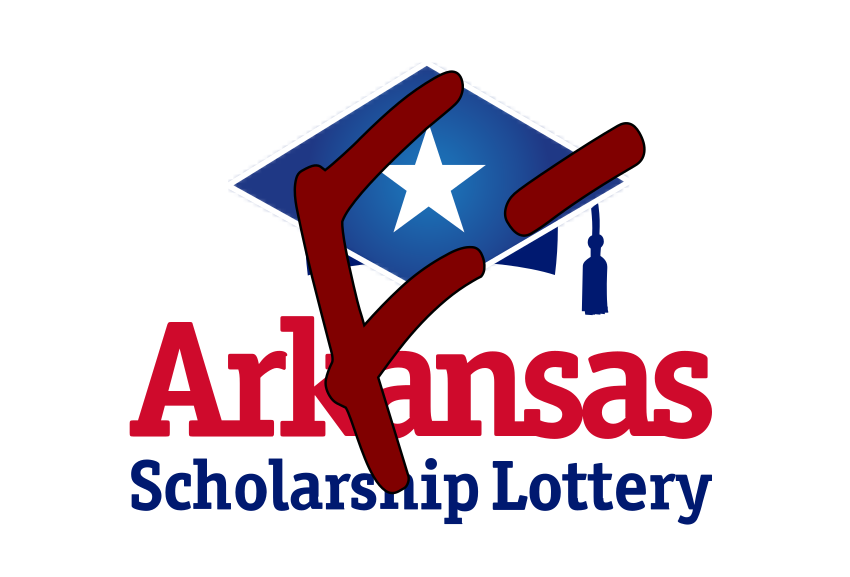Yesterday we wrote about how the Arkansas Lottery continues to give college scholarships a pathetic amount of funding despite taking in tens of millions of dollars every month.
Today the Arkansas Democrat-Gazette notes that the Lottery paid less to scholarships in September of this year than in September of last year despite making more money this year.
The newspaper reports,
While the scratch-off ticket revenue in September increased from $28.3 million a year ago to $30.3 million, draw-game revenue dipped from $6.7 million a year ago to $5.7 million, according to the report. . . .
Draw games include Powerball, Mega Millions, Natural State Jackpot, Cash 3, Cash 4, Lucky for Life and Fast Play.
Lottery Director Bishop Woosley said Thursday, “Our instant sales continue to be strong, which is a good sign for the overall health of the lottery.”
Instant tickets also are called scratch-offs.
As the article points out, the Arkansas Lottery sells a lot of instant tickets — a.k.a. scratch-off tickets. That isn’t anything to celebrate. It actually indicates the Arkansas Lottery may be preying on the poor and vulnerable. Here’s how.
The Arkansas Lottery Relies More on Scratch-Off Tickets Than Neighboring States
So far this fiscal year, scratch-off tickets have accounted for about 85% of the Arkansas Lottery’s ticket sales.
Last year scratch-off tickets made up nearly 82% of the Lottery’s total ticket sales.
Better than four out of five lottery tickets sold in Arkansas are instant tickets.
That’s higher than lotteries in neighboring states like Tennessee, Missouri, Texas, and Louisiana.
Scratch-Off Tickets Are Addictive
Because players win or lose instantly, scratch-off tickets affect people in much the same way that casino-style games do. That makes them more addictive.
For example, a 2015 study in Canada found a link between problem gambling and instant lottery tickets, writing,
It is possible that problem gamblers are more attracted to instant win tickets than lottery tickets because instant win tickets provide immediate feedback. Some authors have even described instant win tickets as “paper slot machines” (Griffiths, 2002). Therefore, instant win tickets might be considered a more exciting form of lottery gambling, which may help explain why it attracts a different type of gambler than [ordinary] lottery tickets do.
A 2018 study published in the Journal of Behavioral Addictions also found a link between how often a person played scratch-off tickets and the severity of a person’s gambling problem.
If Arkansas relies heavily on scratch-off tickets, that means we’re depending on a form of gambling that is linked to addiction and other gambling problems.
Expensive Scratch-Off Tickets Are Especially Bad
Once upon a time scratch-off tickets sold for $1 or $2 each, and the prizes were relatively small.
Today the Arkansas Lottery sells scratch-off tickets for as much as $10 or $20 apiece with big prizes and long odds.
People who spend $20 on one of Arkansas’ scratch-off tickets have a 67% – 88% chance of losing their money.
In 2007 The New York Times wrote about the dangers of high-price scratch-off tickets in Texas, and pointed out how they encourage people to buy lottery tickets out of desperation, saying,
But critics in Texas and elsewhere say games promising this kind of instant gratification are more likely to contribute to the kind of problem gambling that is usually associated with fast-paced casino betting, and they are now trying to limit them.
They say the games take particular advantage of the most vulnerable members of society, including the poor and members of minority groups.
“Scratch-off tickets are to the lottery what crack is to cocaine,” said State Senator Eliot Shapleigh, a Democrat who represents El Paso. . . .
The higher value games certainly appeal to people like Larry Hardy, who nearly every day walks from his central Houston rooming house to a nearby Chevron station to work odd jobs and buy scratch-off lottery tickets.
He has won $200 several times with a game called “Break the Bank,” but Mr. Hardy, who relies on $600 a month in federal disability payments to support himself, still spends $30 to $40 a week on the elusive dream of hitting it big.
“I feel at times I shouldn’t play again,” Mr. Hardy said, “but the reason I play is I really need $20, $30, $40 or maybe $50.”
After analyzing state lottery data in Texas in 2008, the Houston Chronicle found that Texas’ $50 scratch-off ticket “fared best in middle-income neighborhoods typically not considered affluent.”
Scratch-off tickets that cost $20 offer big payouts to people who are living on very little money.
That means they are likely to entice people to play the lottery out of desperation in hopes of “hitting it big.”
Conclusion
- The Arkansas Lottery relies heavily on scratch-off tickets — more so than neighboring states.
- Scratch-off tickets are associated with gambling addiction and other problems.
- This makes it likely that the Arkansas Lottery is preying on people who suffer from gambling addictions and similar problems.
- The Arkansas Lottery sells scratch-off tickets that cost as much as $20 apiece.
- Evidence from other states indicates expensive scratch-off tickets that offer big payouts and slim odds ultimately prey on people who are desperate for money.
It’s also worth noting that the percentage of its revenue that the Arkansas Lottery allocates for education is well below average, and right now lottery scholarship funding for 2020 is on track to be bad even by the Arkansas Lottery’s standards.
The Lottery never has provided the $100 million per year for education that voters were promised back in 2008.
Bottom line: Ten years running, there’s really nothing celebrate about the Arkansas Lottery.
READ MORE





